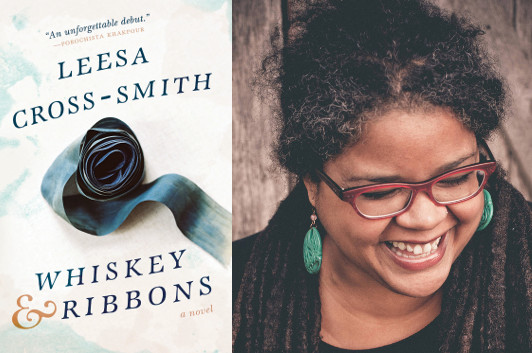Paige Cooper on Peter Carey’s Fantastic

photo: Adam Michels
The short stories in Paige Cooper’s Zolitude are dark and uncanny, and it takes a while to get adjusted to her world. Even a story like Moriah, which starts off with a woman driving a bookmobile to a remote community of registered sex offenders—a premise that’s odd, to be sure, but still within the bounds of the plausible—may end up taking a sudden turn into fantasy, leaving you to sort out what’s just happened. In this guest essay, Paige talks about discovering another author with a flair for the fantastic, Australia’s Peter Carey. But this is no simple panegyric; Cooper’s nuanced appreciation of Carey’s short stories helps us see certain “gaps,” as she calls them, that we can learn to recognize (as both readers and writers) and face head on.
When we were nineteen my new friend said, “What about Peter Carey, though? Did you read the one where he goes ‘EVERY TIME WE FUCK A HORSE DIES’?” We knew each other from our undergraduate fiction workshop. She was the best writer at the table. This was because she was the best reader. We’d go for spring rolls and cokes at a Vietnamese place off-campus. I never mentioned the demolished copies of George R.R. Martin’s A Song of Ice & Fire in my dorm room. Maybe I alluded to the uncracked copy of War & Peace. Mostly I wrote down names she mentioned.
“Uh, no,” I said. I cared about fucking, I cared about horses, I liked capslock. I wrote PETER CAREY in my student agenda. A few weeks or months later I was at the discount bookstore downtown where everything was always remaindered or crap and Collected Stories was sitting on top of a bin of low-fat cookbooks. It became the first book of short fiction I’d ever purchased. Plausibly, it became the first contemporary short fiction I’d ever read (despite having already written two or three short stories in order to get into a creative writing program so that I could, presumably, write more.)
4 May 2018 | selling shorts |
Leesa Cross-Smith: Coziness and Comfort

photo courtesy Leesa Cross-Smith
I first learned about Leesa Cross-Smith in late 2017, when she wrote an essay about country musician Sturgill Simpson for Oxford American. Well, really, it was as much about her path to artistic success as it was about his, about the inspiration she drew from his work. And she said: “I got here by writing the stories I wanted to write, by not worrying about where the publishers would put me or if my readers would find me. I trust them. They trust me. They’re smart, and they know what they’re looking for. I may not be easily labeled, but I’m here anyway and it ain’t half bad.”
Well, right then, I wanted to see what she had done. So I asked her publisher about what was then an upcoming debut novel, Whiskey & Ribbons, and I’m here to tell you now: This is the real deal. You want to be in on the ground floor of Leesa Cross-Smith fandom, and this is your chance. Go for it.
I call Whiskey & Ribbons cozy and romantic. I talk often of coziness and comfort, because I am (sometimes) a naturally anxious person. Whenever I find myself worried about someone or something, real or fictional, I like to place them in a comforting spot, imagine things when they are safe and right again. In It Chooses You, Miranda July writes, “All I ever really want to know is how other people are making it through life—where do they put their body, hour by hour, and how do they cope inside of it.” I rewrite things in my head and fanfic in my brain in order to fix sad endings, in order to make them okay. Coping and hope and holding on are just a few things that inspired me to write Whiskey & Ribbons.
Some years ago, a local police officer was shot and killed. His shift was soon to be over or had already ended, but he never made it home. I thought about him and his family a lot. And after 9/11 I watched a lot of interviews with the widows, specifically… the pregnant ones, the ones with small children… I listened to how they spoke about coping, about grieving, about how it felt when their worlds were turned upside down.
8 March 2018 | guest authors |

 Our Endless and Proper Work is my new book with Belt Publishing about starting (and sticking to) a productive writing practice.
Our Endless and Proper Work is my new book with Belt Publishing about starting (and sticking to) a productive writing practice. 
